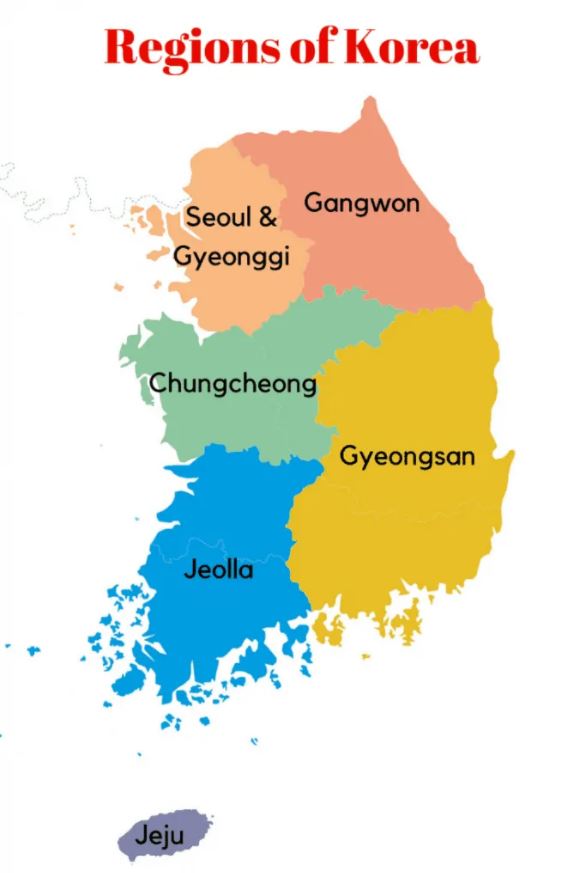Reconnecting with Gwangju Through Saturi
By Ashley Kim.
In 2007, I emigrated from Gwangju to a mostly white suburb in southern California. I was seven at the time, and not understanding a word of class for a few months left me with a distinct fear of the English language. This fear developed into an obsession over how I spoke – the pronunciation, grammar, and tone all had to indicate intellect. It was as if slurring a consonant or breaking a subject–verb agreement took me back to my mute, confused self in the early days of my American life. I lost my Korean accent soon enough but also the joy of relaxed speech.
My tense relationship with language began to thaw in the summer of 2018, when I visited my relatives in Gwangju before heading off to college. During this trip, I noticed the way people in the city spoke – the Jeolla regional dialect, or saturi (사투리). My mother’s Jeolla saturi, which she never uses with me, returned the moment she was reunited with her parents and siblings. If you do not have family from Jeolla-do, you can hear this saturi best in the women working in restaurants or in taxi drivers – especially when they get frustrated with traffic. Like all saturi, it assumes a casual and familiar atmosphere, as if you expect the listener to understand you immediately. The Seoul-based standard Korean (표준어), on the other hand, sounds more formal and impersonal. I cannot quite pin down how the Jeolla dialect sounds, but there is a distinct cadence and pattern of emphasis. Most of the time, it sounds playful, but it can also be quite charismatic. Dragging out an –ing (-잉) at the end of a sentence, for example, can transform an insult into a friendly jab.

The fluidity that runs through the Jeolla saturi negated all the rules of speech I had set for myself back in America. This dialect emphasizes clarity, humor, efficiency, and ease over sounding smart or educated. With saturi, spoken language is not dictated by its written form. It exposes convoluted language for its awkwardness, and nudges the speaker to express their intentions more directly. There is no pure or perfectly correct saturi; everyone adopts a saturi to a degree and creates a unique blend of their own.
After returning from Gwangju, I found myself spending hours on YouTube watching videos of people speaking the Jeolla dialect. The Seoul-centric media system in South Korea rarely portrays the Jeolla saturi on air, so I had to keep my ears alert for any person who spoke with the dialect. I probably watched all videos of Jeolla-dialect competitions, in which each contestant gives a short speech using saturi. I also looked at documentaries and travel programs that included interviews with locals. The more I looked into Jeolla language and culture, the more I became interested in how marginalized people speak and communicate. In South Korea, much of the business and cultural capital is concentrated in Seoul and its surrounding areas. What people of other regions do to preserve their heritage and identity was important to me because I felt that I had neglected that for so long in America.
To this day, I am not sure if my interest in the Jeolla dialect was the end of my anxiety with speaking or the beginning of just another obsession directed towards language. Either way, I just could not stop watching these videos. There was a rush in learning about a place that is completely unknown to most people around you. I filled my free time in college with virtual trips to Gwangju, thinking about the seemingly incommunicable gap between that city and my college in Northern California. By my junior year, I was deep into learning about the history of Gwangju and South Korea’s regionalism (지역감정), and I chose to write on the May 18 Democratic Movement for my senior thesis. Strangely, this all goes back to my love for the Jeolla saturi and how it made me view speaking in a different light.
With the pandemic, I have found more time to delve into Gwangju-related content on the internet. There is much I do not know, but I feel deep satisfaction in discovering more about the city that I came from and the dialect that is used there. The sense of community in Gwangju shows in both its history and saturi, and that is what makes me want to come back to the city the most.
The Author
Ashley Kim (김상유) is a senior studying rhetoric at UC Berkeley. She loves reading Toni Morrison, hiking, and baking with her little sister. She currently lives in Brea, California, but spent her early childhood in Gwangju. Her hope is to return to the city after graduation and work with youth there.







